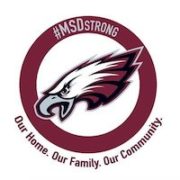Importance of Respecting Others Personal Space
For some, understanding the importance of personal space can be difficult. They may not be able to see why their friends or others may not want them so close when talking, but, making sure that you’re a good distance unless told otherwise is a crucial social skill to have. Not everyone likes to be touched or to be too close to another. It may not be that they have a problem with you, but rather just the intimacy, so ensuring your child knows what the proper distance is with their peers is important for them to make friends and nurture friendships. Especially as kids begin to transition into middle and high school age, the comfortable personal space distance gets larger. As we get older, we may not want to be hugged or touched as often as when we were kids simply because tolerance levels and sensory challenges change with age, and we must adapt to that. Yet, for those with life challenges such as ADHD, Autism, “Asperger’s,” anxiety disorders, etc., this can be extra hard to do.
The idea of a “Hula Hoop” is one-way kids can begin to understand the idea of personal space. Having your child pretend to be in the middle of their own “hula hoop” because if they were in one, the other people should be however far away it is from your kid to the outside of the ring (about an arm’s length) . This can serve as a gentle reminder to those who may struggle with imagining how far they should be since now they are provided with a general guideline, and therefore can avoid being a “space invader”, so they are no longer invading another person’s space. This can then also help them make friends since socializing can be made easier since they are not so focused on personal space but focused on body language and verbal cues instead. For those with life challenges though, it can be especially hard for them to manage this skill. A source states “An overwhelming majority of the children with (varying exceptionalities) (79 percent) “were less aware of being too close and more prone to personal space invasions” than their typically-developing siblings.” (Sarris, 2014). Yet, with the proper help, understanding how to identify and respect things such as personal space can be made easier.
At the Support for Students Growth Center, we provide the social, behavioral, emotional, and executive functioning skills children, teens, young adults, and their families need for a happy and successful life in and out of school settings. Our team of professionals offers individualized and family coaching/counseling and social skills groups to help teach skills such as bullying resolution to ensure parents do not have to worry that their kids will be unable to solve issues on their own, such as figuring out proper personal space. So, if your child is struggling with skills like the ones listed above and much more, the SSGC is equipped with the tools to help.
Dr. Eric J. Nach, Ph.D., M.Ed., A.S.D.C., is a Developmental and Behavioral Specialist who specializes in Autism, ADHD and related disorders. Dr. Nach is the founder of the Support for Students Growth Center and College Life Skills Program where he and his team of professional’s help develop the Emotional Maturity, Executive Functioning, Life Skill and Social Abilities of children, teens, young adults and college students and those high school students preparing for college. The CollegeLSP is a subsidiary program of the Support For Students Growth Center, located in Boca Raton, FL and providing services nationwide.
Sarris, M. (2014, October 2). Space invaders: Personal space and autism. Kennedy Krieger Institute. Retrieved January 2, 2023, from https://www.kennedykrieger.org/stories/interactive-autism-network-ian/personal-space-autism





